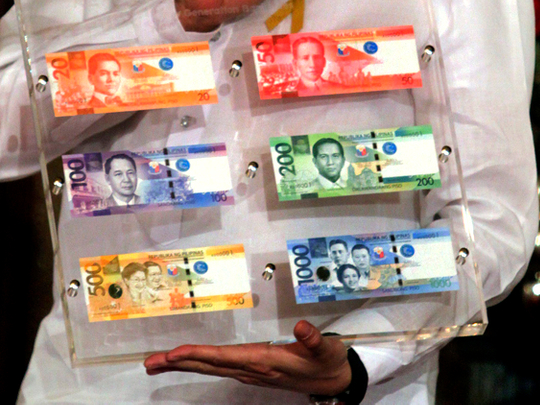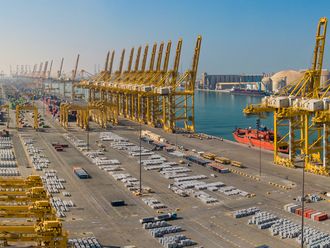
Manila: The Philippine peso has weakened after the United States Federal Reserve announced plans to increase interest rates, and not due to negative fallout from the statements of Philippine President Rodrigo Duterte against US President Barack Obama in Laos in early September, senior officials said.
“When US Federal Reserve chair Janet Yellen said they might soon raise rates, the Philippine stock market declined because hot money was flowing out. Impending increase in the interest rate by the Federal Reserve (of the US central bank) is a move to make it more attractive for hot money to go back to the US,” explained budget secretary Benjamin Diokno.
“The dollar is strengthening because of this,” said Diokno, arguing the peso has weakened “as a result of the strengthening of the dollar, more than weakening of the peso”.
The Philippine peso closed at P48.25 (Dh3.67) to a dollar on Monday, similar to seven years ago when a dollar hit P49.335 on September 15, 2009.
“Portfolio investments are naturally unpredictable — investors are in constant hunt for more profitable stocks. It is not abnormal for hot money (portfolio investment) to flow out. In fact, they have overstayed (at the Philippine stock exchange),” said Congressman Karlo Alexei Nograles, chair of House committee on appropriation.
Comparing a better investment option for the Philippines, Nograles said, “President Duterte is after foreign direct investment, a capital inflow better than portfolio investments. He is doing this with his commitment to bring order in the streets; end multi-pronged insurgency problems; allotting P8.2 trillion (Dh683.3 billion) for public infrastructure for the next six years; fast track private-public infrastructure projects in several regions including Mindanao, in southern Philippines.” Philippine Congress has approved a P3.35 trillion (Dh279.2 billion) budget for 2017.
Meanwhile, families of 10 million overseas Filipino workers (OFWs) who send $26 billion (Dh95.5 billion) to $28 billion to relatives in the Philippines every year; and Filipino exporters who earn by exporting Philippine products abroad gain with the weakening of the Philippine peso, analysts said.
Duterte’s statements against US President Barack Obama and United Nations Secretary General Ban Ki Moon (who both criticised the Philippine president’s campaign against illegal drug trade (which has killed 3,000) has nothing to with the depreciation of the Philippine peso, both Diokno and Nograles said.
But before Duterte departed for Vietnam on Wednesday, he said on Tuesday, “The Americans are undermining us now. They are manipulating ... the peso weakened. The Americans are bullying the Philippines. I will have new alliances of commerce and trade.” He referred to China and Russia.
The Philippines, one of the 10 member countries of the Association of Southeast Asian Nations (Asean), is a US treaty ally.












